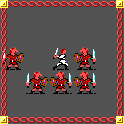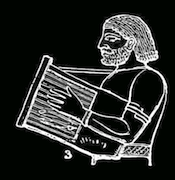|
Interesting updated from LibyaFeb17.comquote:CONFIRMED from Tripoli We received confirmation from Tripoli that the fuel situation is now at the edge of breaking point. Queues for petrol/gas have reached record lengths and fuel is being rationed severely. The same issue is present with cooking gas (sold in refillable canisters). It is expected that the city will run out of both within the next 2 days There's been a lot of chatter on Twitter about gas and fuel shortages in Tripoli, it'll be interesting to see what effect it'll have when it eventually runs out. I'm also trying to find out more about Misarata, last I heard is coalition aircraft had bombed Gaddafi artillery outside of the city, but I've not heard anything since.
|
|
|
|

|
| # ? May 22, 2024 01:09 |
|
Ballz posted:That is in my opinion, a great and logical analysis of the West's intervention. But once again, reading the comments to it will kill many brain cells. Take the logic of the article further, and you begin to see that the narrative is increasingly in favor of both the West and the Arab street. If the rebels emerge victorious, we'll have another Muslim country that that really really likes us (Bosnia, Albania, and Kosovo are also Muslim countries that are quite fond of the United States, for similar reasons).
|
|
|
|
To lighten things up a bit, I pulled this off of twitter. It's surprisingly catchy!: http://www.youtube.com/watch?v=ixwx_B38678
|
|
|
|
Brown Moses posted:There's been a lot of chatter on Twitter about gas and fuel shortages in Tripoli, it'll be interesting to see what effect it'll have when it eventually runs out. My guess is that any heavy support that remains in Tripoli will soon be able to go nowhere, making it easier for the rebels to liberate surrounding towns and lay siege to Qaddafi forces in the capital. That and the shortages will have heighten the disconnect between the citizenry and the Qaddafi regime and further weaken whatever hold it has over Tripoli.
|
|
|
|
I'm also guessing if there's civilian petrol shortages then military petrol shortages aren't far behind. A couple of recent bits about Misarata from LibyaFeb17.com quote:Snipers still present from Al Quweiri store crossroads till the end of Tripoli street. There is currently an exchange of gunfire between them and the revolutionaries quote:Gaddafi’s forces have stopped firing after a number of explosions were heard across the city. Fighter jets be heard flying over the city right now
|
|
|
|
It's possible that military fuel stockpiles are running low, but it's probably not connected that closely to the civilian market. I'd suspect that coalition forces are a bigger problem for military movement within Libya than fuel concerns are at this time.
|
|
|
|
That sniper situation is a really awful one if they're any way coordinated with one another. Snipers in an urban environment could shut down the whole city and they can feasibly only be took out one by one with gunfire.
|
|
|
|
Korak posted:That sniper situation is a really awful one if they're any way coordinated with one another. Snipers in an urban environment could shut down the whole city and they can feasibly only be took out one by one with gunfire. I think there is still some question if these are all actual snipers with sniper rifles and such, or if they're mostly guys holed up with regular small arms just firing out at whatever moves. EDIT: I don't get the impression that this is like 'Enemy at the Gates' or something, with dozens of highly trained crack snipers taking down everything that moves.
|
|
|
|
Fintilgin posted:I think there is still some question if these are all actual snipers with sniper rifles and such, or if they're mostly guys holed up with regular small arms just firing out at whatever moves. Yeah; I would even go so far as to doubt that these people have decent marksmanship training. That's not to say that it isn't a bad situation, but I don't think these 'snipers' will pose a threat to any organised resistance.
|
|
|
|
Yeah reading every mention of 'sniper' as 'gunman' makes the twitter reports a bit more believable and also makes everything make more sense in general.
|
|
|
|
ChaosSamusX posted:Yeah; I would even go so far as to doubt that these people have decent marksmanship training. That's not to say that it isn't a bad situation, but I don't think these 'snipers' will pose a threat to any organised resistance. That's not their job, their job is to sow terror. They're snipers because they're hiding out, taking potshots from hidden locations.
|
|
|
|
In regards to Syria, it's worth noting that Bashar's father oversaw one of the largest incidents of civilian slaughter to ever occur in the middle east. http://en.wikipedia.org/wiki/Hama_massacre Basically he had the city shelled and "cleansed" of rebel elements. Anywhere from 10,000-40,000 mostly civilian deaths. As a side note, when I looked at the CNN story on that woman in Tripoli who burst into the journalists hotel, the guy in this photo with the cigarette in his mouth threw me for a loop. He's got what I can only describe as the perfect "bemused sociopath" look.
|
|
|
|
VikingSkull posted:It's possible that military fuel stockpiles are running low, but it's probably not connected that closely to the civilian market. I'd suspect that coalition forces are a bigger problem for military movement within Libya than fuel concerns are at this time. Well, the military's fuel needs have been dropping lately. 
|
|
|
|
Narmi posted:Not exactly how long you mean by "well before the start of WW2" exactly, but Hitler was chosen in 1938, less than a year before WWII started, and after he began his antagonistic policies towards the west (unless you mean the US specifically, but even then I donèt think they were too keen on his power grabs) and his desire to start a war of conquest became apparent. Well, 1938 was the year of the Munich Agreement, Peace in our Time and all that. He had definitely finally reunited all Germans in the Reich and had said he'd not demand anything else so now everything was going to be peace, happiness and flowers, right? It was only in 1939, when he annexed the non-German part of Czechoslovakia then invaded Poland, when it became absolutely clear appeasement had failed.
|
|
|
|
Good article on what went on in Ajdabiya, worth reading: http://www.csmonitor.com/World/Middle-East/2011/0326/Libyan-rebels-celebrate-victory-in-Ajdabiya
|
|
|
|
Narmi posted:Not exactly how long you mean by "well before the start of WW2" exactly, but Hitler was chosen in 1938, less than a year before WWII started, and after he began his antagonistic policies towards the west (unless you mean the US specifically, but even then I donèt think they were too keen on his power grabs) and his desire to start a war of conquest became apparent. I mean, it's possible they chose him for different reasons before they knew all that, but by the time he was put on the cover they had to have known what kind of guy he was. ^^^ That explains my rational for Hitler getting on the cover. As for Stalin, he was on the cover TWICE ('39 and '42), and I was referring to his second nomination. To be honest I'm not sure why he was perceived as divisive enough to get the nomination in '39. Either way, the magnitude of Stalin's crimes didn't become apparent until much later, so I'm still pretty comfortable with my assertion that Time doesn't like super-villains on it's front page.
|
|
|
|
TapTheForwardAssist posted:You ain't lyin': Being anti-war isn't being pro-Ghadffi, FYI.
|
|
|
|
Dusseldorf posted:Being anti-war isn't being pro-Ghadffi, FYI. Wasn't saying they were the same, just saying that referring to Ghadaffi killings as "hypothetical" seems a bit odd. I assume the poster meant something more like "potential" like "the potential slaughter as Ghadaffi takes Benghazi". "Hypothetical" just makes it sound like there might have been violence if Benghazi fell. Quibbling over that one comment aside, there are plenty of pro-Q posts on various forums and blogs, some more entertaining than others.
|
|
|
|
feedmegin posted:Well, 1938 was the year of the Munich Agreement, Peace in our Time and all that. He had definitely finally reunited all Germans in the Reich and had said he'd not demand anything else so now everything was going to be peace, happiness and flowers, right? Contraction mapping posted:^^^ That explains my rational for Hitler getting on the cover. As for Stalin, he was on the cover TWICE ('39 and '42), and I was referring to his second nomination. To be honest I'm not sure why he was perceived as divisive enough to get the nomination in '39. Either way, the magnitude of Stalin's crimes didn't become apparent until much later, so I'm still pretty comfortable with my assertion that Time doesn't like super-villains on it's front page. The PotY position goes to the most influential person, regardless of whether they're a good guy or not. You've made some pretty convincing points, but the position is more of a "this is what this guy did, here's how it affects the world" kind of thing. And yes, they will put a horrible person on their cover is he qualifies as the most influential person of the year. If you want proof, you can read the articles yourselves. Time's editors clearly know who they chose. I'll admit that you're right about Stalin in 1942 (they're kinda neutral, and portray him as America's buddy, glossing over their previous articles on him), but wrong about Hitler and Stalin in 1938 and 1939. Time, on Jan 2, 1939, posted:All these events were shocking to nations which had defeated Germany on the battlefield only 20 years before, but nothing so terrified the world as the ruthless, methodical, Nazi-directed events which during late summer and early autumn threatened a world war over Czechoslovakia. When without loss of blood he reduced Czechoslovakia to a German puppet state, forced a drastic revision of Europe's defensive alliances, and won a free hand for himself in Eastern Europe by getting a "hands-off" promise from powerful Britain (and later France), Adolf Hitler without doubt became 1938's Man of the Year. Time, on Jan. 1, 1940, posted:The signing in Moscow's Kremlin on the night of August 23-24 of the Nazi-Communist "Non-Aggression" Pact was a diplomatic demarche literally world-shattering. The actual signers were German Foreign Minister Joachim von Ribbentrop and Soviet Premier-Foreign Commissar Molotov, but Comrade Stalin was there in person to give it his smiling benediction, and no one doubted that it was primarily his doing. By it Germany broke through British-French "encirclement," freed herself from the necessity of fighting on two fronts at the same time. Without the Russian pact, German generals would certainly have been loath to go into military action. With it, World War II began. Time, on Jan. 4, 1943, posted:The year 1942 was a year of blood and strength. The man whose name means steel in Russian, whose few words of English include the American expression "tough guy" was the man of 1942. Only Joseph Stalin fully knew how close Russia stood to defeat in 1942, and only Joseph Stalin fully knew how he brought Russia through. Both 1938 and 1939's "Man of the Year" were chosen because, morals/ethics aside, they were hugely influential. To come back to my original point, this is why they could put Gaddafi on the cover as the Person of the Year while still keeping with the reasons past recipients were chosen. However, they've already put him on April's cover (I added it below for anyone interested), so I'm not sure if they'll put him on another one this year (maybe with other dictators, who knows).  Personally, I'd find it interesting if they did kind of an overview of each country with the more influential figures. For example, they could have the following on the cover: Tunisia - Ben Ali vs. Mohamed Bouazizi Egypt - Mubarak vs. Wael Ghonim (and maybe ElBaradei) Libya - Gaddafi vs. the NTC (and Mohammed Nabbous) Yemen - Saleh vs. ... Maj. Gen. Ali Mohsen al-Ahma? etc. It encompasses the Arab revolts, but is specific enough to put faces and names to each country so you can actually understand what drove the people to protest. e: . I've heard of specific people representing a group, but I don't think something like this has ever happened before. It would be nice if Time did something like this instead of making a feel-good or generic choice. Narmi fucked around with this message at 02:39 on Mar 27, 2011 |
|
|
|
Narmi posted:A whole-lotto-stuff Well poo poo, I stand corrected then. I guess back in the day TIME actually had a pair. I was largely basing my assertion on the fact that the recipients are usually 'good' people/groups based on the Wikipedia list, and because in my lifetime we've had several bogus ones (ie Giuliani, You) when clearly a bad guy (Bin Ladin, Chavez) would have been infinitely more appropriate for that year. The more you know!
|
|
|
|
Time Man of the Year should be shared between the protestors and Mohamed Bouazizi From him comes all of this, in the same way Rosa Parks is venerated in the States..
|
|
|
|
National Post has an interesting article on who will lead a post-Gaddafi Libya:quote:They ride into battle clinging to battered pickup trucks spray painted with signs saying they belong to Libya’s “Feb. 17 Revolution.” source Hopefully they won't resort to infighting once Gaddafi is gone, though it sounds like Gaddafi being there is the only thing holding them together. Still, I'm glad that the NTC is organising itself to for an actual government, hopefully it pans out and the people accept them.
|
|
|
|
Narmi posted:Time's editors clearly know who they chose. I'll admit that you're right about Stalin in 1942 (they're kinda neutral, and portray him as America's buddy, glossing over their previous articles on him), but wrong about Hitler and Stalin in 1938 and 1939. Christ, that's a good cover, or at least it would have been if they hadn't crammed the dead celebrity in. I gotta switch over from Newsweek to Time. Newsweek is being run into the ground by Tina Brown. The cover of the current issue is seriously: "What the ($@*! is next?" Me unsubscribing, that's what's next.
|
|
|
|
dj_clawson posted:Christ, that's a good cover, or at least it would have been if they hadn't crammed the dead celebrity in. Time hasn't been readable in about 15 years. Their archives are great, but the new issues are just awful.
|
|
|
|
Xandu posted:Time hasn't been readable in about 15 years. Their archives are great, but the new issues are just awful. That's what I always thought but a lot of writers seem to be ditching Newsweek for Time.
|
|
|
|
dj_clawson posted:That's what I always thought but a lot of writers seem to be ditching Newsweek for Time. I don't see how getting the writers from Newsweek could possibly help the situation.
|
|
|
|
dj_clawson posted:That's what I always thought but a lot of writers seem to be ditching Newsweek for Time. Probably that just means that Newsweek is even worse.
|
|
|
|
dj_clawson posted:That's what I always thought but a lot of writers seem to be ditching Newsweek for Time. Clinging to the last few peaks of mediocrity while the island of print journalism slips into the cold waters of irrelevance. In other news, it sounds like things have not cooled down any in Syria quote:MalathAumran: youth of Latakia Now organizing guarding shifts at the entrances of their lanes [1-2] #Syria People who've been keeping up with this since Egypt will note the similarity to the response in Cairo once the police presence was withdrawn from the streets. Increasing numbers of pro-government thugs, (distinct from security forces in either a lack of official position or taking action outside the color of their official position) is a sign of a failure of normal security forces. While it may seem strange to consider that security forces, which are perfectly capable of shooting you out of hand, have limits to their methods, non uniformed thugs are definitely an escalation of pro-regime violence.
|
|
|
|
Time is bad, they may not be directly sensationalist but they suffer from the same 'must report both sides of the issue no matter how retarded' problem as many news outlets.
|
|
|
|
Dusseldorf posted:I don't see how getting the writers from Newsweek could possibly help the situation. Fareed Zakaria jumping ships made me a little suspicious. And Ezra Klein, I'm not sure if he switched, I just know he's my third cousin or something. George Will has meanwhile gone completely senile/insane and is convinced the plot for high-speed rail is Communist. But I've read Newsweek every week for years and they've had some great articles, particularly in the science and religion columns. And they had embedded reporting in Baghdad between the invasion and the surge, i.e. when everyone else had left and didn't give a poo poo about it anymore. I also like reading on Shabbat, so that endears me to magazines.
|
|
|
|
Sarkozy's on a roll with resolutions:quote:UN resolution seeks sanctions against Ivory Coast I though there were already sanctions in place on the Ivory Coast that targetted Gbago. I know that they weren't allowing farmers to export there goods, and the banks had recognized Ouattara as President, making it impossible for Gbago to withdraw money from the country's accounts. I guess they left him alone so that he would leave on his own, and it's become obvious he isn't going to do so without he right kind of encouragement. e: Bobfromsales posted:Time is bad, they may not be directly sensationalist but they suffer from the same 'must report both sides of the issue no matter how retarded' problem as many news outlets. What's wrong with Time's reporting both sides of an issue? Is it the way they do it? Unless they're biased towards one side, this is usually a good thing since it can expose the flaws of one (or both) side(s). The reporters in Libya interviewing Gaddafi and his family are what showed the world how crazy he is, and probably helped drum up support for the rebels. Narmi fucked around with this message at 03:54 on Mar 27, 2011 |
|
|
Narmi posted:What's wrong with Time's reporting both sides of an issue? Is it the way they do it? Unless they're biased towards one side, this is usually a good thing since it can expose the flaws of one (or both) side(s). The reporters in Libya interviewing Gaddafi and his family are what showed the world how crazy he is, and probably helped drum up support for the rebels. I think he means more like how most of the media will run reams of statements from Gaddafi or Libyan state TV and don't even bother to put a constant disclaimer, "Oh, by the way, these are the same people who said the revolution started because Al Queda was drugging Nescafe and the youth were drinking it. There's also been horrific violence documented in Libya which they daily claim is not happening and has never happened, but reality is begging to differ. They've also claimed multiple times to be abiding by a ceasefire, while quite provably shelling towns with tanks, and sniping cities." It might help to qualify the coverage just a bit when one of the sides you're covering is that crazy and lying through their teeth. It's unfortunate but I guarantee some Americans are not paying any attention and believe Gaddafi is an innocent victim of colonialism right now.
|
|
|
|
|
Spiky Ooze posted:I think he means more like how most of the media will run reams of statements from Gaddafi or Libyan state TV and don't even bother to put a constant disclaimer, "Oh, by the way, these are the same people who said the revolution started because Al Queda was drugging Nescafe and the youth were drinking it. There's also been horrific violence documented in Libya which they daily claim is not happening and has never happened, but reality is begging to differ. They've also claimed multiple times to be abiding by a ceasefire, while quite provably shelling towns with tanks, and sniping cities." It might help to qualify the coverage just a bit when one of the sides you're covering is that crazy and lying through their teeth. It's unfortunate but I guarantee some Americans are not paying any attention and believe Gaddafi is an innocent victim of colonialism right now. Thanks, that makes more sense - reporting one side's opinion as fact is pretty shoddy journalism. I never knew that Time did that. Anyways, have a map I made (well not me, this website made it, I just chose the axes):  I was curious exactly how bad things had gotten under Gaddafi. Kinda interesting how as soon as he too over the economy literally started sliding backwards. Also, the size of the dos are relative to the population - in 1960 it was 1.24 million, in 2006 it was 5.9 million. VVVVV Huh, that's surprising low for the Time that I know. Narmi fucked around with this message at 04:31 on Mar 27, 2011 |
|
|
|
Narmi posted:What's wrong with Time's reporting both sides of an issue? Is it the way they do it? Unless they're biased towards one side, this is usually a good thing since it can expose the flaws of one (or both) side(s). The reporters in Libya interviewing Gaddafi and his family are what showed the world how crazy he is, and probably helped drum up support for the rebels. It's bad when reporting the other side means giving a page to Jenny McCarthy to rant about the evils of vaccines. Bobfromsales fucked around with this message at 04:27 on Mar 27, 2011 |
|
|
|
Is this by the same photog who did the crying Glenn Beck pic?
|
|
|
|
Zappatista posted:Is this by the same photog who did the crying Glenn Beck pic? Nope, I checked, and it's by a guy called Platon, while the Glenn beck one was taken by Jill Greenberg. Apparently it has something to do with a series of pictures where she took candy away from babies to make them cry and he criticized her, saying she was a left wing nutjob who terrorized children. e: He's done a bunch of covers for different magazines, all following the same theme. Narmi fucked around with this message at 05:35 on Mar 27, 2011 |
|
|
|
Bobfromsales posted:It's bad when reporting the other side means giving a page to Jenny McCarthy to rant about the evils of vaccines. A couple years ago (maybe less) Newsweek did a great cover story about how Oprah was hocking stupid poo poo the world, and spent a long time covering the vaccine issue without spending a sentence in defense of not giving your kids vaccines. In Libyian news: HOLY poo poo the story of the raped woman in the hotel is depressing, because you know she's probably dead right now. Pussy reporters, most of them didn't do anything.
|
|
|
|
THE HORSES rear end posted:Take the logic of the article further, and you begin to see that the narrative is increasingly in favor of both the West and the Arab street. If the rebels emerge victorious, we'll have another Muslim country that that really really likes us (Bosnia, Albania, and Kosovo are also Muslim countries that are quite fond of the United States, for similar reasons). The United States does not deserve to be liked. With all of the corruption and crimes committed by the US that have been discussed over and over in Debate & Discussion and GBS, why the heck should any state or entity like or trust the US? If this were a just world, the US would be severely crippled and unable to ever exert any international influence ever again and I say this as an American citizen.
|
|
|
|
dj_clawson posted:Pussy reporters, most of them didn't do anything. Please regale us with tales of what you would've done.
|
|
|
|

|
| # ? May 22, 2024 01:09 |
|
XK posted:Please regale us with tales of what you would've done. Probably what one of them did, try to get between her and the police, then gotten beaten and kicked out of the country. But if EVERYBODY did it..
|
|
|



























